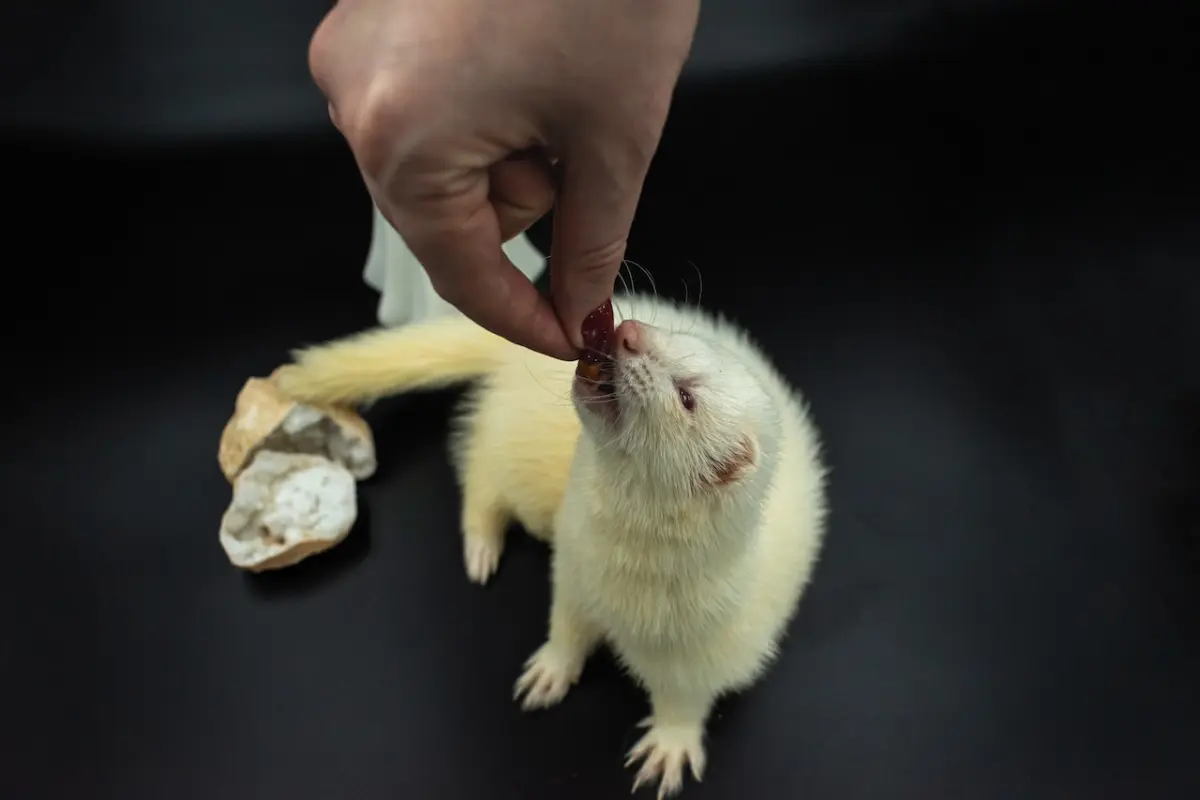Ferret adoption is one process that can bring joy and companionship to your life. If you’re considering adding a ferret to your family, adoption is a wonderful option that can save a life and provide a loving home to an animal in need. In one of our previous articles where we talked about the ultimate care guide for ferrets is important to read as well, while we cover everything you need to know about ferret adoption, from finding the perfect match to preparing for your new pet’s arrival.
Why Adopt a Ferret?
There are several reasons why adopting a ferret is a fantastic choice:
- Saving a life: By adopting a ferret, you’re providing a loving home to an animal in need and potentially saving them from euthanasia.
- Supporting shelters and rescues: Adoption fees help support the work of shelters and rescue organizations, enabling them to care for more animals in need.
- Adopted ferrets may be socialized: Many ferrets in shelters and rescues have already been socialized, making them great companions for first-time ferret owners.
- Older ferrets need love too: While baby ferrets are undeniably cute, older ferrets often have a harder time finding homes. By adopting an older ferret, you’re giving them a second chance at a happy life.

Where to Find Adoptable Ferrets
There are several places to find adoptable ferrets:
- Local animal shelters: Many animal shelters take in ferrets alongside cats and dogs. Contact your local shelter to inquire about ferrets available for adoption.
- Ferret-specific rescues: Some organizations focus solely on rescuing and rehoming ferrets. A quick online search can help you locate ferret rescues in your area.
- Online adoption websites: Websites like Petfinder and Adopt-a-Pet allow you to search for adoptable ferrets in your area. These sites often feature profiles and photos of available animals.
- Social media and online forums: Join ferret-related Facebook groups and online forums to connect with fellow ferret enthusiasts who may know of ferrets in need of new homes.
Caring For Your Ferret – The Ultimate Guide For Every Ferret Enthusiast
Choosing the Right Ferret for You
Before adopting a ferret, consider the following factors to ensure you find the perfect match:
- Age: Ferrets can live up to 8-10 years, so consider whether you’re prepared for a long-term commitment. Older ferrets may have shorter lifespans but can be just as rewarding companions.
- Personality: Ferrets have individual personalities, ranging from shy and reserved to outgoing and energetic. Spend time interacting with potential adoptees to find a ferret that suits your lifestyle and preferences.
- Health: Some ferrets may have pre-existing health conditions that require ongoing care. Speak with shelter staff or rescue volunteers to learn about any known health issues and consider whether you’re able and willing to manage them.
- Compatibility: If you already have ferrets or other pets, consider how a new addition will fit into your household. Introduce potential adoptees to your existing pets under the guidance of shelter staff or rescue volunteers to assess compatibility.
Preparing for Your Ferret’s Arrival
Before bringing your adopted ferret home, ensure you have everything they’ll need for a comfortable and happy life:
- Cage: Provide a spacious, multi-level cage with proper ventilation and secure doors.
- Bedding: Offer a cozy sleeping area with soft bedding, such as a hammock or sleep sack.
- Litter box: Place a small litter box in the cage and fill it with non-toxic, dust-free litter.
- Food and water: Purchase high-quality ferret food and provide fresh water in a heavy dish or sipper bottle.
- Toys and enrichment: Stock up on ferret-safe toys, tunnels, and climbing structures to keep your new pet entertained.
The Adoption Process
The ferret adoption process may vary depending on the shelter or rescue organization. Generally, the process includes the following steps:
- Submit an application: Complete an adoption application, providing information about your experience with ferrets, your living situation, and your plans for pet care.
- Interview: Speak with shelter staff or rescue volunteers to discuss your application and ensure you’re a suitable match for the ferret you’re interested in adopting.
- Meet-and-greet: Visit the shelter or rescue to meet the ferret in person and spend time interacting with them.
- Home visit: Some organizations may require a home visit to ensure your living space is safe and appropriate for a ferret.
- Pay the adoption fee: Adoption fees help cover the cost of caring for animals in the shelter or rescue and may include spay/neuter surgery, vaccinations, and microchipping.
- Sign an adoption contract: The adoption contract outlines your responsibilities as the adopter and may include requirements for ongoing care and veterinary check-ups.
Understanding Ferret Behavior: A Comprehensive Guide on Their Quirks and Habits
Bringing Your Ferret Home
When the big day arrives, transport your new ferret home in a secure, well-ventilated carrier. Place a soft blanket or towel inside the carrier for comfort and include a small, familiar item from the shelter or rescue, if possible, to help ease the transition.
Helping Your Ferret Settle In
Ferrets may need time to adjust to their new environment. Follow these tips to help your adopted ferret settle into their new home:
- Give them space: Provide your ferret with a quiet, secure area to explore and settle into at their own pace.
- Establish a routine: Stick to a consistent feeding, playtime, and grooming schedule to help your ferret adjust to their new life.
- Bond with your ferret: Spend time interacting with your ferret through play, cuddling, and gentle handling to build trust and form a strong bond.
- Monitor their health: Keep an eye on your ferret’s appetite, energy levels, and behavior. Consult your veterinarian if you notice any changes or signs of illness.
Conclusion
Adopting a ferret is a rewarding experience that provides a loving home to an animal in need while enriching your life with a unique and entertaining companion. By following this comprehensive guide, you’ll be well-prepared to navigate the adoption process and welcome your new furry friend into your home. Remember, ferret adoption is a commitment to the lifetime care and well-being of your new pet.
